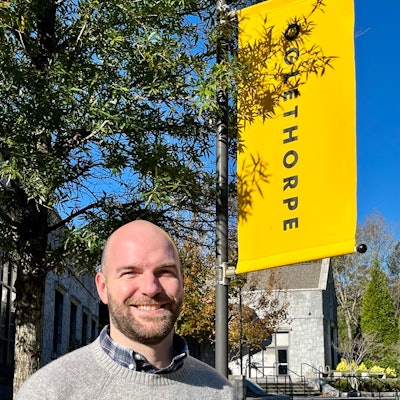Immigrant high school students without citizenship or permanent residency in the U.S. are often told by high school counselors and colleges that they do not have many options for higher education. Known to many as Dreamers, DACA recipients, and undocumented students, it’s easy for them to slip through the cracks without getting the educational support or resources they deserve.
Many state policies block undocumented students from receiving in-state tuition — even if they completed their K-12 education there — and several states directly prohibit undocumented students from enrolling in many public universities. On top of that, undocumented students are ineligible for any federal financial aid. No Pell Grants. No student loans. No Federal work study. Despite these barriers, undocumented students are finding opportunities to pursue a college education through individual resourcefulness, ambition, targeted scholarships, and more welcoming institutional policies. Peter Dye
Peter Dye
Over the past few years, Oglethorpe University has seen a steady increase in Deferred Action on Childhood Arrivals (DACA) and undocumented enrollees. In 2019, Oglethorpe partnered with TheDream.US, a national scholarship program that helps provide access to a college education for immigrant youth who came to the country at a young age without documentation.
Undocumented students make up nearly 10% of Oglethorpe’s degree-seeking student body. As the scholar advisor to TheDream.US recipients at Oglethorpe, I regularly hear about the struggles and obstacles they are forced to face every day. Constant threats of deportation for themselves and family members, limited options for earning income, lack of accessible healthcare, and ineligibility for driver’s licenses in some states are ever-present hurdles. The future of DACA itself is uncertain as the program bounces through the courts again. With the growing likelihood that the program will be ruled unlawful and DACA renewals halted indefinitely, undocumented students will face a challenging new reality. Fully repealing DACA would mean that Georgia’s nearly 20,000 DACA recipients — who have on average lived in Georgia for almost two decades — would lose their authorization to work and the state would face an even greater job shortage than it already has, in addition to the loss of tax revenue from each of those soon-to-be unemployed Georgia residents.
Nationally, repealing DACA would take away over 600,000 members of the country’s workforce, including an estimated 181,000 DACA-eligible college students. On and off-campus jobs, paid internships, and funded research would be almost entirely off the table, post-graduation career opportunities will be limited. Undocumented high school graduates are increasingly aging out of eligibility to apply for DACA in its current state, provided the program is allowed to continue. There are an estimated 100,000 undocumented high school graduates nationally each year eager to contribute, get a degree, and join the workforce but who are being refused the ability to even apply for work authorization, and worse, face deportations from their homes to a country they may not have been to since they were children. Current undocumented college students already face a host of challenges, and continued inaction from legislatures will only make their lives more expensive and more dangerous as prices go up and immigration protections are stripped back. We can and should continue to push congress to pass legislation that opens a pathway to citizenship for Dreamers and undocumented immigrants. But higher education institutions can support students of different immigration statuses regardless of our policymakers' actions.




















